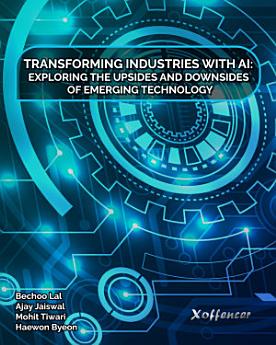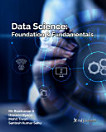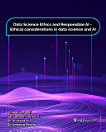TRANSFORMING INDUSTRIES WITH AI: EXPLORING THE UPSIDES AND DOWNSIDES OF EMERGING TECHNOLOGY
About this ebook
About the author
Bechoo Lal, PhD, became a Member (M) of IAENG: International Association of Engineers, USA with membership (108820) in 2010, a Senior Member (SM) in 2019. I am doctorate PhD in Computer Science, PhD- Information System from University of Mumbai, Master from Banaras Hindu University (BHU), PGP- Data Science from Purdue University, USA. Currently I am working as a Associate Professor in Department of Computer Science & Engineering, KLEF- KL University Vijayawada Campus Andhra Pradesh, India. My research areas are data science, big data analytics and Machine Learning.
Mr. Ajay Jaiswal, is an expert in Computer Engineering. He completed 17 years in Academics. He taught many subjects of Engineering e.g. Software Engineering, Compiler Design, Theory of Computation, Java Programming, Basic Computer Engineering, Principles of Programming Languages, Information Technology, Artificial Intelligence etc. He worked with many Computer Programming Languages and Open Source Technologies.
Mohit Tiwari, B.Tech. (Computer Science) & MBA (Operations & Research) having over 20 years’ experience in a wide gamut of functional areas including Software Development / Software Engineering, Networking, Systems / Database Administration and IT Infrastructure Management, Teaching, Open source technologies. Currently associated with Bharati Vidyapeeth’s College of Engineering as Assistant Professor in Computer Science and Engineering Department. A keen researcher with sound exposure to emerging trends and happenings in the IT industry.
Dr. Haewon Byeon, received the DrSc degree in Biomedical Science from Ajou University School of Medicine. Haewon Byeon currently works at the Department of Medical Big Data, Inje University. His recent interests focus on health promotion, AI medicine, and biostatistics. He is currently a member of international committee for a Frontiers in Psychiatry, and an editorial board for World Journal of Psychiatry. Also, He were worked on a 4 projects (Principal Investigator) from the Ministry of Education, the Korea Research Foundation, and the Ministry of Health and Welfare. Byeon has published more than 343 articles and 19 books.







